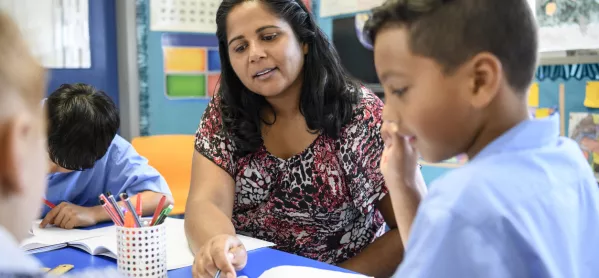One of the many advantages of working in primary is that it is much rarer to hear the question “What is the point of this?” or its more pointed cousin: “When am I ever going to need this in my life?” At worst, children might ask “Why?” of a particular skill or lesson, and there’s usually a graspable answer for that.
There is also the fact that much of what we teach in primary will be essential for children, whatever future choices they might make. The ability to read, write, carry out basic computation - all these things are pretty key whatever career one chooses, or even to engage with society. But what if children have mastered those basics, as well they might, by Year 3?
It doesn’t take long before we get into the realm of knowledge that isn’t really career-focused. Aside from the few members of my family who are primary teachers, I daresay none of my friends or relatives have ever needed to know whether the Stuarts came before or after the Georgians. Nor will they have needed to separate their own salt from a saltwater solution, or identified whether a rock was igneous or metamorphic. They are very unlikely ever to have been asked to improvise their own piece of music based on the sea.
Yet all of these things are quite commonly taught at primary schools - and rightly so.
It would be hard to justify a good deal of the primary curriculum, let alone secondary, in strictly work-related terms, but that’s fine by me: education should be about much more than that. It’s also why I think we should be wary about expecting the national curriculum to set out much more detail in the foundation subjects.
I can see why people say it. With the sudden new focus on the broader curriculum under Ofsted’s spotlight, everyone is looking again at how they select and sequence the content they teach. Surely it would be easier if it had all just been set out in the statutory curriculum to save us all the bother. But I disagree.
My own school is on the Sussex coast. The history of the Vikings is, inevitably, a rather more remote topic than that of the South Saxons. It’s important that we look at both, but it’s also right that we make the use of our local connections to guide our studies, just as we will when looking at rivers in geography. A school in York would no doubt make very different decisions.
In these days when we deliberate about “greater depth” in a subject, perhaps we ought to separate out the role of the national curriculum from the decisions a school might make. I’d much rather see all children leave primary school with a broad but shallow knowledge of the timeline of British history. Each school could then choose to focus on different aspects in depth, but secondary schools could rely on the vast majority knowing that the Norman Conquest was a long way before Victoria’s time.
The same might apply across many subjects: every child might have an entitlement to learn about great classical musicians or Renaissance artists, but exactly which are studied in detail is a decision best left to the person doing the teaching.
Because, frankly, in the end, little of it really matters. Knowledge begets knowledge, and if they learn about the big-picture stuff, then the detail can be different for all of us.
Often my answer to “Why are we learning this?” is to say “Because it will make you a more interesting person”. And for that to remain true, it’ll be no good if we all learn exactly the same thing.
Michael Tidd is headteacher at East Preston Junior School in West Sussex. He tweets @MichaelT1979




